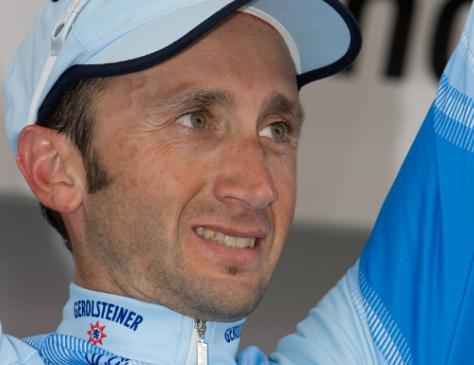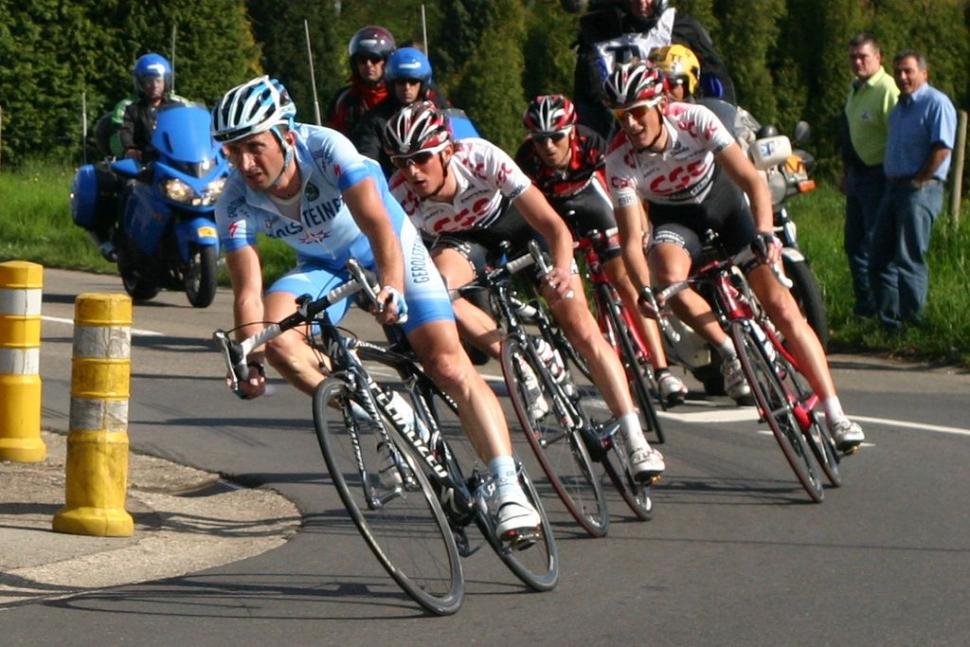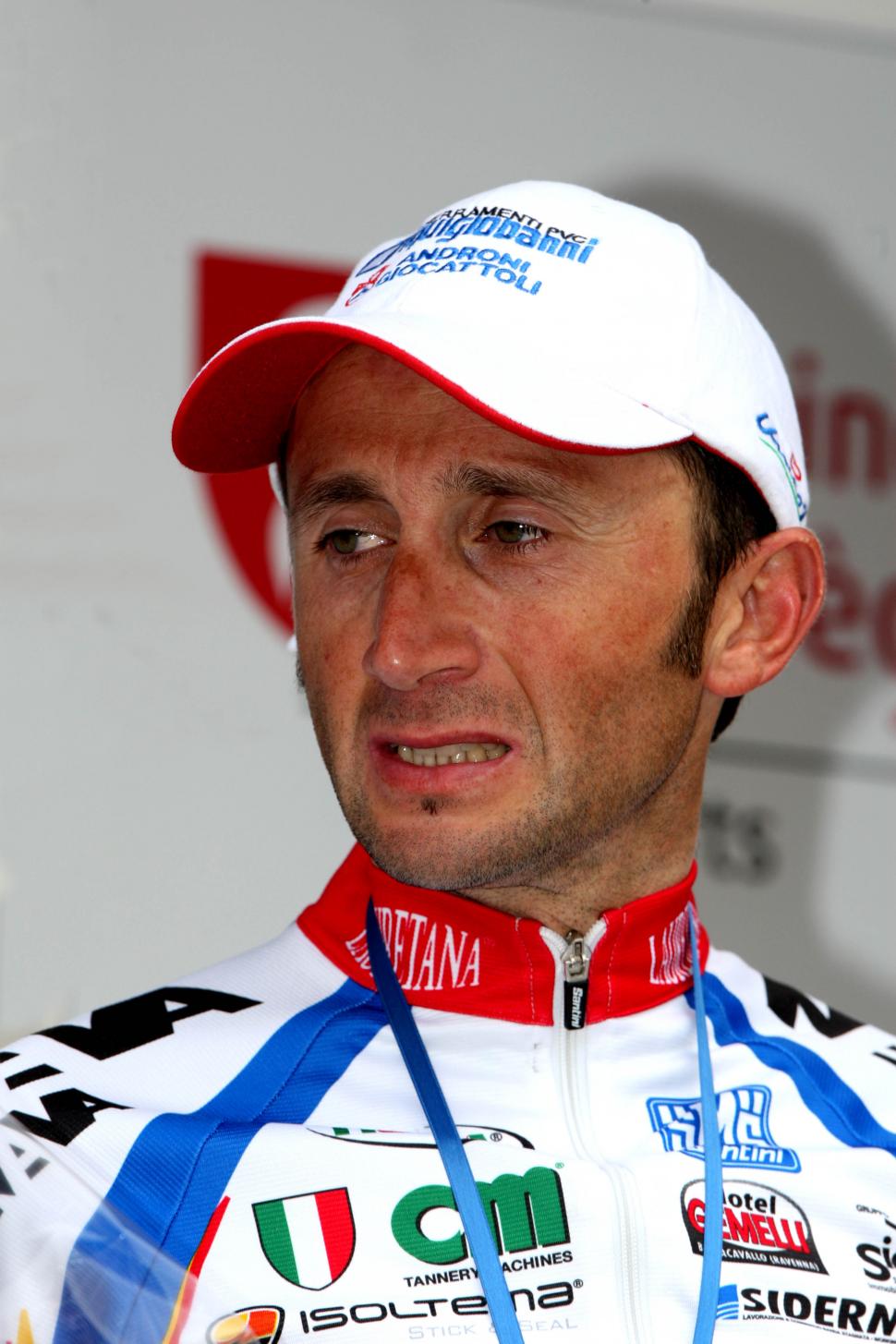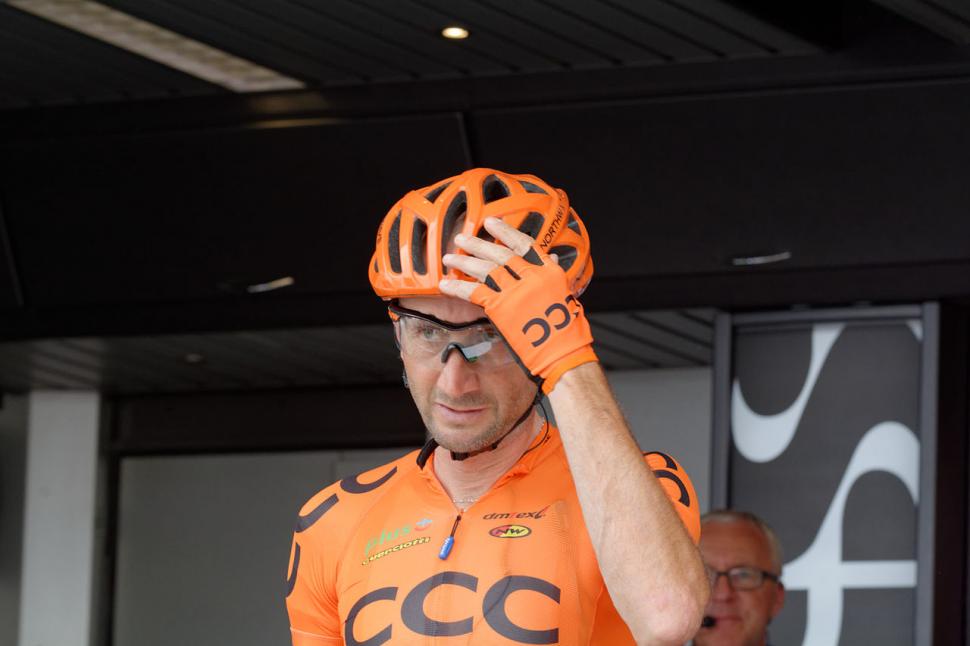- News
- Reviews
- Bikes
- Accessories
- Accessories - misc
- Computer mounts
- Bags
- Bar ends
- Bike bags & cases
- Bottle cages
- Bottles
- Cameras
- Car racks
- Child seats
- Computers
- Glasses
- GPS units
- Helmets
- Lights - front
- Lights - rear
- Lights - sets
- Locks
- Mirrors
- Mudguards
- Racks
- Pumps & CO2 inflators
- Puncture kits
- Reflectives
- Smart watches
- Stands and racks
- Trailers
- Clothing
- Components
- Bar tape & grips
- Bottom brackets
- Brake & gear cables
- Brake & STI levers
- Brake pads & spares
- Brakes
- Cassettes & freewheels
- Chains
- Chainsets & chainrings
- Derailleurs - front
- Derailleurs - rear
- Forks
- Gear levers & shifters
- Groupsets
- Handlebars & extensions
- Headsets
- Hubs
- Inner tubes
- Pedals
- Quick releases & skewers
- Saddles
- Seatposts
- Stems
- Wheels
- Tyres
- Health, fitness and nutrition
- Tools and workshop
- Miscellaneous
- Cross country mountain bikes
- Tubeless valves
- Buyers Guides
- Features
- Forum
- Recommends
- Podcast
OPINION
Davide Rebellin made me fall in love with professional cycling (and all its flaws)
 Davide Rebellin (licensed CC BY SA 2.0 on Flickr by Tete de la Course).PNG
Davide Rebellin (licensed CC BY SA 2.0 on Flickr by Tete de la Course).PNGI never met Davide Rebellin. As far as I can remember, I don’t even think I was ever present at the side of the road for any of the 1,500-plus races the Italian participated in during his mammoth 30-year professional career.
But Rebellin, who was killed last week by a hit-and-run lorry driver at the age of 51 and just days into a well-earned retirement, had a profound impact on my own relationship with professional cycling and its unique sporting drama. And, of course, its ability to mimic life itself, with all its beauty, flaws, and ever-present grey areas.
In March 2008, I was still in the early courtship period of that relationship. By then, I was well-versed in the Tour de France and had flirted with some of the classics, propped up my GCSE French vocabulary with the official Tour guide bought in Paris before the 2007 race, had mastered a borrowed copy of Pro Cycling Manager, and – most important of all – loved riding my bike.
But I hadn’t yet fully submerged myself in what was back then still the very exotic, mythical world of European pro bike racing.
But that month’s Paris-Nice sealed the deal.
The 2008 Race to the Sun was pure chaos, a far cry from the regimented rhythms I was used to at the Tour de France. After a few flat, frenetic, windy days on the journey south from the town of Amilly, a 21-year-old called Robert Gesink emerged as the sport’s Next Big Thing™ as soon as the race entered the hills.
Gesink, riding for Rabobank, impressively bludgeoned his way into the race lead after dragging Cadel Evans up the fearsome, snow-covered slopes of Mont Ventoux.
To most observers at the time, the young, spindly Dutchman seemed imperious in yellow. But behind him on GC, half a minute back, lurked a rider who at 36 and with three Paris-Nice podiums under his belt was already, even in 2008, one of the peloton’s wiliest old foxes: Davide Rebellin.
The quiet and unassuming Italian was also one of the peloton’s most consistent riders in the first decade of this century, and clearly Gesink’s biggest threat during Paris-Nice’s final weekend (which I could finally watch live on Eurosport, having been forced to tape the earlier stages on my trusty VHS recorder. Thanks, school – and the pre-streaming age).
After briefly being touted as a possible grand tour contender, courtesy of a breakthrough stage win, spell in the pink jersey, and sixth place overall at the 1996 Giro d’Italia, Rebellin would find his true calling in the hilly classics and week-long stage races.
Riding for the German Gerolsteiner team, his finest hour came in the spring of 2004, when he won the ‘Ardennes triple’ of Amstel Gold, Flèche Wallonne, and Liège-Bastogne-Liège in the same week, earning him the rather obvious nickname ‘Trebellin’.
However, despite a string of strong placings he had never tasted GC success at Paris-Nice, and the previous year had experienced the ignominy of having the yellow jersey wrested from his shoulders on the final day by Alberto Contador.
In 2008, however, with the number one dossard on his back and having rallied impressively in the final kilometre to limit his losses on Ventoux, Rebellin appeared the most able and willing to inflict the same pain on the jersey’s newest incumbent, Gesink. And the Dutchman knew it too, finishing the following day’s breakaway stage to Sisteron glued to his Italian rival’s back wheel.
Racing against Valverde and the Schleck brothers a few weeks after Paris-Nice at thr 2008 Liège-Bastogne-Liège [Les Meloures]
But then, on the race’s penultimate stage to Cannes, on the descent of the final climb of the Col du Tanneron, all hell broke loose.
Sensing – rightly – that the young Dutchman in yellow was more capable and comfortable when the road was heading up than down, Rebellin seized his chance. Gesink, on the other hand, an obvious talent but clearly still pretty green, failed this time to heed the Clash’s warning about the old and cunning.
A Sylvain Chavanel attack split the group on the downhill, with only Luis León Sánchez and the Italian trio Rebellin, Damiano Cunego, and Rinaldo Nocentini (remember him?) able to follow. Meanwhile Gesink, hardly a demon descender at any point in his career, was isolated from his Rabobank teammates and suffering from cycling’s version of the yips.
With riders scattered across the south of France, the relentless Rebellin – aided by an impromptu Italian coalition and his Gerolsteiner teammate Bernhard Kohl (more on him later) – piled on the pressure into Cannes.
Gesink, meanwhile, would finish 33rd on the stage, a minute and a half down, causing him to tumble off the podium altogether, as Rebellin thrillingly secured the first Paris-Nice overall victory of his then-16-year career.
It was enthralling, captivating viewing.
The opportunistic dismantling of the precocious, exciting talent (Gesink, it may be hard to imagine now, was described by cycling writer Ed Pickering at the time as “the fastest climber in the world”) by the streetwise veteran, and in such thrilling fashion, was like nothing I’d ever seen before.
Like Richard Dunne shackling Lionel Messi before volleying home a last-minute winner from 35 yards (well, at least that’s how it seemed to me at the time).
I was hooked. Within a month, I’d joined my first cycling club, took part in my first race, bought my issue of Cycle Sport magazine (with world champion Paulo Bettini on the cover), and began to steadily grow my collection of cycling books.
And despite the best efforts of the 2010 Giro, or the 2011 Tour of Flanders, or the 2022 Tour, that year’s Paris-Nice remains my favourite ever men’s race. Nothing beats your first time, and all that.
On the podium after winning his third career Flèche Wallonne title in 2009 [Photosport International]
Of course, as my immersion into the sport continued at pace, inspired by Rebellin’s coup at Paris-Nice, so – naturally – did my interest in the grim, grey reality behind the thrilling, technicolour façade.
By the time Lance Armstrong – the Texan and Rebellin were born just over a month apart in 1971 and turned pro within a week of each other in 1992 – announced his ill-fated comeback to the sport in the autumn of 2008, I had become a fully-fledged anti-doping evangelist (reading Paul Kimmage’s A Rough Ride at the age of 15 will do that to you), and, believe me, there was plenty to proselytise about.
2008 was the year of CERA, the third-generation EPO booster, and scintillating performances and subsequent positive tests for Rebellin’s fellow Italians Leonardo Piepoli and the Pantani-lite Riccardo Riccò, and his Gerolsteiner teammates Stefan Schumacher and Bernhard Kohl, along with a host of others.
So, in April 2009, when Rebellin’s own CERA positive – recorded at the Olympic Games, where he took sliver in the road race, and revealed just days after he won yet another Flèche Wallonne and finished third at Liège-Bastogne-Liège – was revealed, it felt like a rather perfunctory encore to the previous summer’s shitshow.
Since the nadir of 2009, with its repeated denials, turbulent private life, and investigation into tax evasion, Rebellin’s never-ending comeback tour was punctuated by an initial wave of continued success (he beat Domenico Pozzovivo and Thibaut Pinot at the important Italian classic Tre Valli Varesine just three months into his 2011 return), a pariah-like status among big teams and race organisers (in stark contrast to the red carpet reserved for other unrepentant dopers such as Ivan Basso), and – finally – the eventual, gradual softening of his reputation among fans who respected and were intrigued by his remarkable longevity.
This long, meandering journey, then, is ultimately more fascinating than the simple realisation that the Italian, like many others before him, was simply yet another product fresh off the assembly line of pro cycling’s century-old conglomerate of corruption.
Rebellin, then the shiny new hope of Italian cycling, turned pro in 1992 into a sport where the lines – never sharp, mind you – were becoming increasingly blurred as the EPO era took hold, and one in which the riders were largely pawns in a manipulative game sanctioned by those with power and position. He wasn’t exactly a victim, but nor was he a cartoonish villain.
Cycling’s grey world – where its heroes, like Rebellin, could enthral you one minute and disappoint you the next – fascinated teenage me almost as much as the racing did, and led me to realise that professional sport wasn’t as black and white as my teenage hard-line anti-doping stance cared to admit. Unlike the Marvel Cinematic Universe of the Premier League, cyclists were flawed characters in a flawed world. They were human, and their sport reflected real life.
Rebellin personified cycling’s inherent dichotomy, where the idealism of riding and racing your bike constantly butted against the harsh reality of what it took to compete and win at the highest level.
Rebellin rode for Pro Conti team CCC between 2013 and 2016
And like all flawed characters, Rebellin slowly, gently came to be redeemed over the last decade by his enduring affinity for something that unites us all, from pros to Cat 4s to weekday commuters: the love of riding a bike.
In an interview with the BBC last year, as he recovered from a double leg fracture that would have ended the careers of pros much younger, he said: “I am a lucky man because I do what I love most; riding has never been a job.
“I get up in the morning and I go out on my bike, I don’t have fixed working hours and I am still living my dream. I won races I dreamt of as a child and I am still here, it's great."
From winning big Italian one-day races in his mid-40s to taking part in the inaugural UCI gravel world championships in October, just weeks before retiring at 51, Rebellin continued to exhibit that undimmed love for riding and racing his bike, which – like it does for so many of us – seemed to provide the shy, softly spoken man with both an outlet and a refuge.
In October, on the eve of his final professional race at the Veneto Classic, and just six weeks before his tragic, senseless death, Rebellin told CyclingNews that the bike would continue to be an important part of his life.
“I go out on the bike because I’m following my passion. Sunday’s my last race, but Monday or Tuesday, I’ll already be back on the bike,” he said.
“For me, it’s really a way of feeling good in myself. It’s my way of life. And I know it will be like that afterwards, too. I always said that I’d keep doing races for as long as I felt good. It’s going to be different now, but I’ll still be going out on the bike. It’s my way of feeling good.”
Riding his bike was Davide Rebellin’s life. And that 15-year-old cycling fan, who sat spellbound during that cold March week in 2008, will be eternally grateful.
After obtaining a PhD, lecturing, and hosting a history podcast at Queen’s University Belfast, Ryan joined road.cc in December 2021 and since then has kept the site’s readers and listeners informed and enthralled (well at least occasionally) on news, the live blog, and the road.cc Podcast. After boarding a wrong bus at the world championships and ruining a good pair of jeans at the cyclocross, he now serves as road.cc’s senior news writer. Before his foray into cycling journalism, he wallowed in the equally pitiless world of academia, where he wrote a book about Victorian politics and droned on about cycling and bikes to classes of bored students (while taking every chance he could get to talk about cycling in print or on the radio). He can be found riding his bike very slowly around the narrow, scenic country lanes of Co. Down.
More Opinion
Latest Comments
- OnYerBike 22 min 14 sec ago
I don't think anyone is saying it is any defence or mitigation for the actions of the murderer....
- chrisonabike 32 min 26 sec ago
Actually I think the "Stop forcing your views on me" cartoon you posted on the Funnies thread is probably the best response.
- Rendel Harris 34 min 31 sec ago
Don't feed it!
- mitsky 1 hour 3 min ago
As shown in this video from CycleGaz: "What a difference school holidays make on traffic" https://youtu.be/z57UgWLCfRg?feature=shared
- chrisonabike 1 hour 41 min ago
The cyclists of today would appreciate this, but they make up a few % of those making journeys. And I only appreciate traffic lights because other...
- momove 2 hours 2 min ago
Thanks, that's probably a good point about all the different profiles - I hadn't thought of that. Interesting Unior tool, thanks for the link.
- levestane 2 hours 5 min ago
Having basic DIY skills for anthing, including bikes, is a great help when you do need to go to the professionals.
- levestane 2 hours 10 min ago
Wera Hex-Plus work very well for me.
- David9694 2 hours 34 min ago
no, because it's cyclists who want to take us back to the Stone Age
- Jaijai 2 hours 51 min ago
All canyons I've seen in the last year had problems out of the box .4 customers had no brakes at all...



Add new comment
1 comments
Nice article. I have also been thoroughly impressed by Davide's long career and love of cycling. So so tragic that his life was taken like this. RIP.